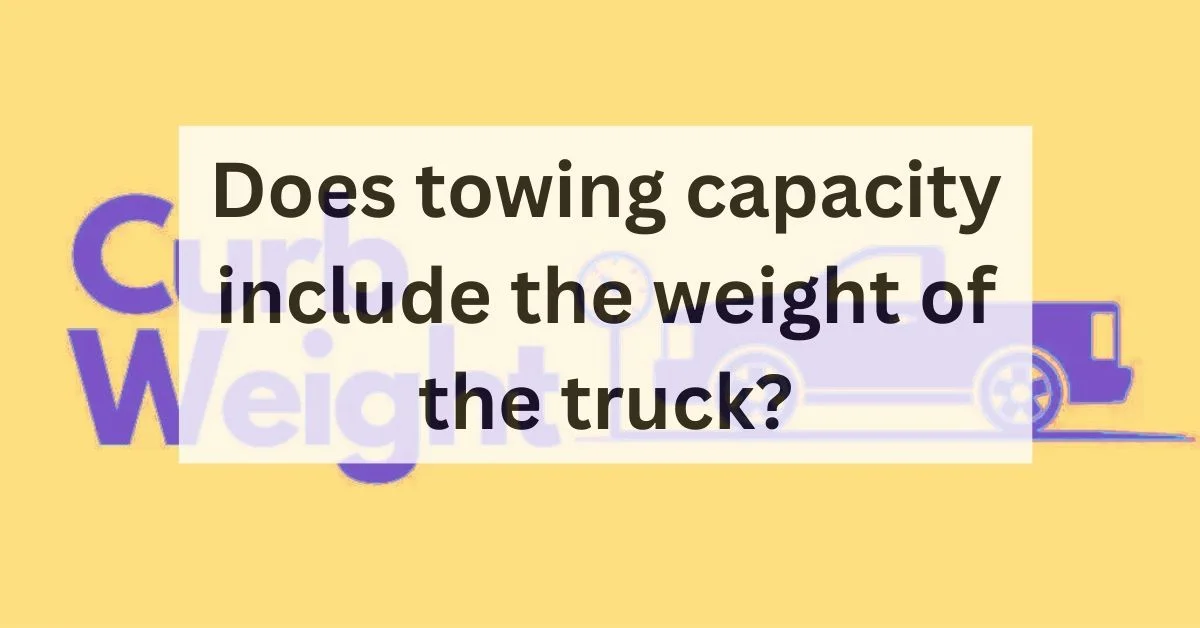The vehicles especially pickup trucks are equipped with more powerful engines and are robustly built for handling extreme tasks in any condition. Whether towing or hauling cargo, you need to know the capacity your vehicle can handle with the proper calculations you will need to make to get the most from your truck.
Table of Contents
The GVWR, gross vehicle weight rating, is one metric you will need to calculate to confirm you don’t cause long-lasting damage to your truck while towing trailers. Gross vehicle weight, including the additional weight of your passengers and cargo. You can find it on the plate affixed to the sidewall, which may be on the driver’s side door, or read your owner’s manual. This value measures how much your truck can carry inside it the driver, passengers, and cargo. The higher the GVWR, the more your vehicle can carry in payload and towing.
Towing Capacity = Gross Combined Vehicle Weight - Curb Weight
Why is it called curb weight?
There are various types of cars on the road, and the average weight of a car comes in right around 5,000 pounds depending on size, equipment, and materials used in its body construction. Curb weight is the total mass of a vehicle with standard equipment and all required operating consumables such as motor oil, transmission oil, brake fluid, coolant, air conditioning refrigerant, and sometimes a full tank of fuel.
Thus, the curb weight is the amount that the vehicle weighs when it’s resting on the curb and not in use. The vehicle weighs all of the standard equipment and amenities, but without any passengers, cargo, or any other separately loaded items in it. The owner’s manual specifies your vehicle’s curb weight, if not look at the driver’s side door. You should find a sticker on it. That sticker typically contains the curb weight.
Knowing the curb weight of your vehicle is important if you are planning to tow or haul a car for weekend trips or handling jobs. The main reason curb weight is necessary is the more a vehicle weighs, the more energy it burns when driving. So, curb weight is an influential factor in fuel economy, along with the car’s engine efficiency, and wind resistance.
Dry weight guides how much a vehicle weighs without “consumables,” which usually means that the vehicle is weighed without any fluids, such as fuel or oil, in it. Wet weight, or curb weight, usually means that the vehicle is weighed with all the fluids needed to drive it.
Frequently Asked Questions: Does Towing Shorten the Life of a vehicle? What exactly does Towing Capacity mean?
Note: If your cargo is not secured and within your truck’s carrying capacity easiest ways to damage its frame, engine, transmission, tires and also hurt other drivers by causing accidents on the road. Please do check your owner's manual before pushing, pulling, or hauling any load. When determining maximum towing capacity, you need to know the curb weight, which includes a full tank of gas and topped-off fluids but no passengers or cargo. Your truck’s mass constitutes part of the GVWR, as does the load you carry. By removing the curb weight from the gross vehicle weight, you will find out how much additional weight your truck can handle.
Conclusion
Yes, the towing capacity refers to how much weight you can safely pull behind your truck with a trailer, and the weight of the truck is definitely added. Typically, your truck’s towing capacity far exceeds its payload capacity because the majority of the weight is resting on the trailer axles, not your truck’s axles.
Truck manufacturers often calculate and promote their truck’s towing capacities. Those given numbers are not practical for most cases as the vehicle has only a driver in it and no cargo. You will likely have passengers or other goods inside the truck, these extras add weight to the vehicle, lowering the actual towing capacities.
Truck brands that obtain this group’s seal of approval for towing have vehicles that will reliably and safely pull the stated weights. However, even with the SAE J2807 standard, the towing weights are maximums. Do not exceed these values for towing. Also, calculate how your actual cab, bed, and towing loads fit into the expected weights.
Aaron Bennett is an accomplished author and a true aficionado when it comes to pickup trucks. With an unwavering passion for all things automotive, Aaron has dedicated his life to exploring the world of pickups and sharing his expertise with others. As the proud owner of several powerful machines, he has spent countless hours behind the wheel, navigating rugged terrains and conquering highways with unrivaled enthusiasm.

